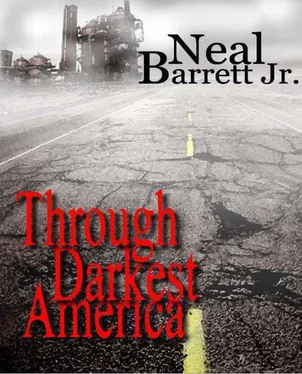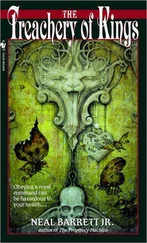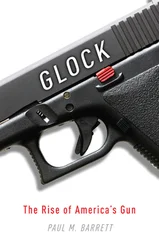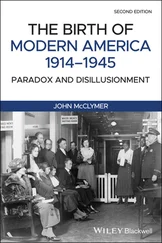“What do you mean, Papa?”
“Just that anybody with good sense knows it’s got to stop sometime!” His fist hit the table so hard Howie jumped. “It ain’t just the war. It’s other things, too. Things that give a few folks too much say in other people’s business!”
Howie didn’t understand a lot about the government, or what it did. He knew there were people like the man who came every year at Choosing and talked about America. That was government and so was the army fighting Lathan. And there were real important people, like the president, who told everyone what to do. But all that was pretty far away. It didn’t have much to do with planting crops and tending stock. You couldn’t think a lot about things you couldn’t see—there were too many real things closer by. Only he guessed the government was going to be close enough to think about, now.
At the end of February the troopers started making their rounds of the farms and ranches in the county, and Howie recalled what Papa had said. It was true enough—a lot of people were thinking the government had bitten off more than it could swallow. They worked hard for what they got and didn’t take kindly to giving any part of it away for something like a War Tax.
At the Jeffers farm there was a fight between one of Lang Jeffers’ boys and a couple of troopers. One soldier got cut up pretty bad and they tried to take the boy in for trial. They didn’t get far with that—Lang made it clear the soldiers would have to take him and his other five sons too if they figured on taking one and he didn’t think that would be too easy to do. The soldiers were smart enough to see they could easily start their own war right there. They took what Jeffers would give them for the War Tax and went on their way.
There were similar incidents at other ranches. Word got around about what had happened at the Jeffers place and no one was too happy about it. The troopers soon realized they’d made a big mistake backing down once. They were being run off farms now before they got started. And no one was sending anything to the war they didn’t want to.
The officer in charge of the troopers was sent back to town and another took his place. The same night that happened Howie and Papa stood out on the porch and watched a red glow light the southern horizon.
“Jess Clayton’s place,” Papa said soberly. “Can’t be anywhere else.”
He didn’t say anything more, but he stood and watched the fire a long time, and after Howie went to bed he heard Papa and his mother talking. Around midnight, Papa took off walking toward the Claytons.
It was late morning before he came back, and sometime after that before he got around to telling what had happened. Jess Clayton’s house and barn were gone. Burned to the ground. Nearly everything he had had been taken off— food and stock alike. Enough to make up for what Clayton’s neighbors had held back, it was said. And if any others cared to argue about the War Tax—why, they’d get the same. The country had to come first, now. There was no time for greed and personal wants with good men starving and dying-in the west, while farmers stayed snug and happy back here.
That was what the new officer had told Jess Clayton’s wife and his boys, Papa said. And he’d told them all this while he made them stand and watch Clayton being hung from a big oak right on his own front yard, where he could see his home being put to the torch. Next to that, the worst thing was that the man who’d done all this was Colonel Jacob himself—who’d grown up right on the land with Jess Clayton and Papa and most of the others.
Papa told that part last. He hadn’t wanted Howie’s mother to know at all, but it wasn’t something you could keep to yourself, he told her, not with the whole county likely to explode over what had happened.
He told it all quietly, without raising his voice or letting his face change at all. And Howie’s mother just listened, the dark hair partly hiding her eyes, the small white hands folded tightly in her lap.
And to Howie, that was the worst part of all—to see them both knowing what the other was thinking and not wanting to let anything show. He’d learned that people did that when they had something on their minds so strong they couldn’t bring it out in words, or even let it show through their eyes.
If his mother had cried and Papa had pounded something with his fist, it wouldn’t have been nearly as bad. As it was, Howie went to bed scared for the first time he could remember.
He came up from the field by the woods to the back of the house. The last of the mares Papa needed were hobbled between him and old Jaro and causing no trouble for a change. It was a lot easier to bring stock up near the house than it was to drive them back down. They were curious about people and the things they did, and when their attention was on something they forgot about causing mischief.
“You’d think December was here ’stead of near April,” grumbled Jaro. He pulled his jacket about spare shoulders and cast a despairing look at the sky.
“Yeah,” Howie agreed, “you would.” It was true enough; spring had gone back into hiding for the moment. Gray clouds hugged the ground, dragging a light, chilling rain behind them. Just wet and cold enough to bring a fine ache to your bones before you knew it.
Howie left Jaro to pen the stock and walked to the barn for feed. At least, he decided, the weather fit the day. A lazy morning with the sun bringing green out of the earth wouldn’t have seemed right—not with all the somber faces around.
Jess Clayton’s hanging had started it all. Papa held a meeting, and a dozen or so ranchers walked in at night to be there. Howie was allowed to sit in, though none of the other men brought their sons, figuring too many people tromping about, even after dark, might get the soldiers to thinking.
“It was a damn fool thing to do,” Papa told Howie’s mother later.
“Now, I don’t see that it was, Milo,” she said gently. “Men need to get together when there’s trouble.”
“Men need to do something when there’s trouble,” Papa grumbled. His eyes turned sullen. “You know what the meeting come to, Ev? Truly? It showed us all together what we were too ashamed to admit to ourselves. That there’s nothing can be done. That we can talk all we like about what ought to be—it ends up we can’t do anything at all ’cept what we’re told to do.”
Papa brought his lips together and looked down at his hands. “’Less we want to get burned out and maybe hung in our own front yards. I’ll tell you, Ev, it don’t make a man feel too tall…”
They’d meet the War Tax, everyone decided, and not give the soldiers cause for trouble. But that wouldn’t be the end of it. They might not be able to undo what had happened at Jess Clayton’s—not now, anyway. But there’d be a time. The government had gone too far, and there’d be a reckoning, for sure. Just what that would be, and when, nobody said. But it raised the spirit of the meeting some, and no one went home feeling like they’d been whipped and drug across the ground.
At first, Papa had Howie and the hands gather War Tax goods in the big barn near the house—but it wasn’t long before he stormed out dark as thunder telling everyone to get that stuff out of his good dry barn—that Jacob and his soldiers could just as well do their stealing off the ground. He didn’t intend to take care of what wasn’t his anymore.
So they hauled the sacks of grain and corn and potatoes, and the bags of stock feed and other items called for, and stacked everything in the open, past the big stand of oaks, fifty yards from the house. The fourteen mares and ten young bucks were kept hobbled in the stock pit near the barn and would be staked out with the rest of the goods when the time came.
Читать дальше












